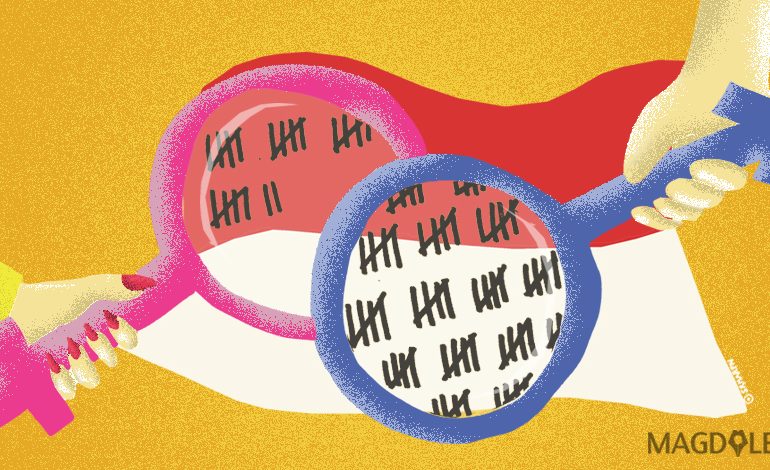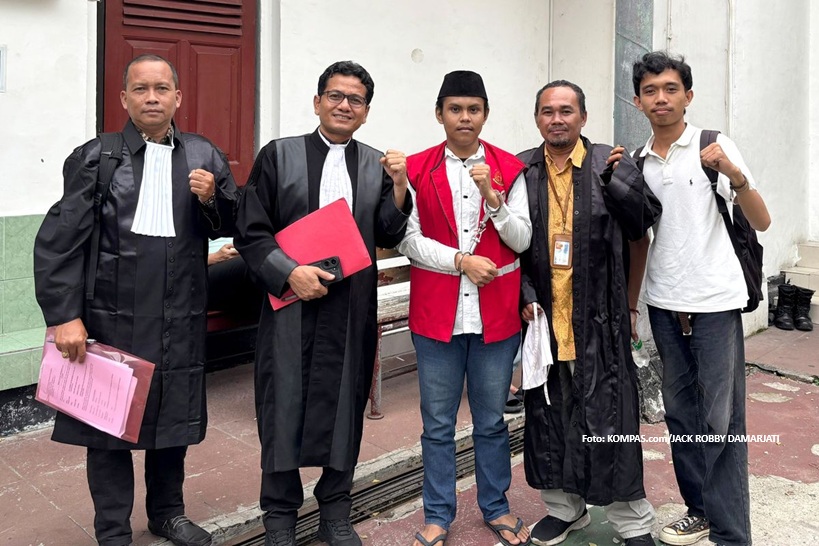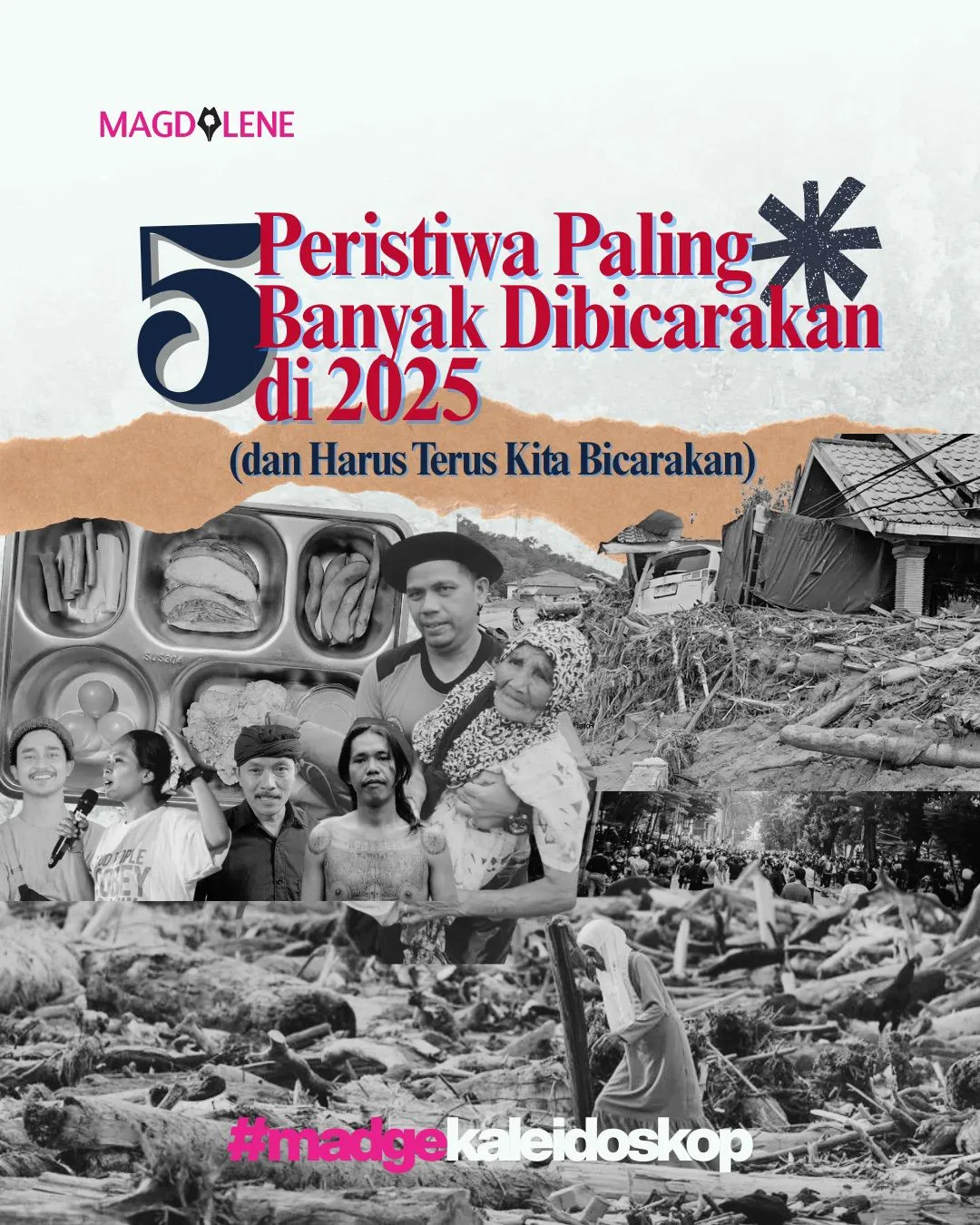RI’s Progress in Inequality Reduction Offset by Substandard Performance

Indonesia has shown some progress in in its efforts to reduce inequality in the country, but a lot more remains to be done. This was one of the findings of the Commitment to Reducing Inequality (CRI) Index 2018, a global ranking of governments, issued by Oxfam and Development Finance International (DFI), based on what they are doing to tackle the gap between the rich and the poor.
At number 90 out of 157 countries, Indonesia’s rank has gone up from 121 last year, mainly because of its tax policies. However, it is still placed in the bottom half of the index on the two other indicators, labor rights and public services spending, at 116 and 98 respectively.
The report also shows that Asia is lagging behind the rest of the world with a majority of the countries in the bottom third of the index and none in the top 10. Across Asia, most governments have failed to improve health and social protection spending, labor policies, workers’ rights and minimum wages, and women’s rights.
Even Singapore, among the wealthiest nations, is in the bottom 10 countries in the world at tackling inequality, ranking 149 due in part to a new indicator on the extent to which a country’s policies enable corporate tax dodging. The city state also has no minimum wage for its workers, except for cleaners and security guards.
“Recently extreme inequality has been growing in East Asian countries and most Asian countries. Indonesia’s decrease in inequality has only slight risen, but it’s still very high,” Matthew Martin, the director of Development Finance International (DFI), said during the report launch in Jakarta on Oct. 9.
He added: “If extreme inequality persists, we cannot end extreme poverty as well. And that commitment should be for poverty, not just extreme poverty.”
The Index ranks 157 countries on their policies on social spending, tax policies, and labor rights – three areas the organizations say are critical to reducing inequality. It found a clear divergence between governments such as the Republic of Korea, Indonesia, and Georgia that are taking positive steps to reduce the gap between rich and poor, and governments that are making it worse. The Index comes ahead of this week’s meeting of finance ministers, central bank governors, and other economic leaders at the World Bank and International Monetary Fund Annual Meeting in Bali, Indonesia.
In 2015 the world’s governments committed to Sustainable Development Goals (SDGs) No. 10, which is to reduce inequality. This is the second year the CRI Index was published with some addition to provide a more comprehensive view of the government’s performance across the three key indicators.
The one aspect Indonesia has been doing well is the progressivity of its tax policies. However, tax collection remains poor in the country at only 11 percent of the GDP, especially when it comes to collecting high-value income tax, showing the pervasiveness of tax dodging and exemption, Martin said. As a result, the tax policies do not have much impact on reducing inequality.
Indonesia is also credited for a 9 percent increase in minimum wage last year, among the most dramatic in the world after Korea’s 16 percent. However, its commitment is questionable on other indicators, such as how well the rights of the workers are protected, and how the existing laws help and protect women at workplace.
There have been a number of labor rights violation in the country, and regarding women’s rights, the laws of equality at work and social harassment are still lacking. Parental leaves remain low at 92 days, and there is not much political willing to address the issue of marital rapes.
Below are policy recommendations for Indonesia to reduce inequality in the country based on the CRI Index:
- Improve data on anti-inequality policies, such as by publishing a national budget report.
- Continue to increase spending on education, health and social protection spending.
- Make corporate income tax more progressive, equalize the top corporate and personal income taxes at 30 percent, and dramatically improve tax collection.
- Improve union rights, including raising parental leave up to 120 days, and improve the law to address marital rape.
- Continue to raise minimum wages across the region
- Harmonize policies in ASEAN, by creating a social protection charter and tax and labor convergence
- Make a national action plan to achieve SDG10 on reducing equality.
Inequality is a global issue affecting almost every country, with some (including wealthy nations) being worse off than others. In contrast, Oxfam’s data shows that 82 percent of wealth created last year went to the top one percent while the bottom 50 percent saw no increase at all. Those in the bottom 10 percent has seen their average annual income risen less than US$3 in a quarter of a century.
According to ILO, one in three workers in emerging developing economies lives in poverty, and its survey of 133 rich and developing countries in 1995-2014 have shown that 91 wages have failed to keep pace with increased productivity and economic growth. Many countries still have no minimum wages and most minimum wages are significantly lower than what is needed to survive. There is also rising modern slavery, with ILO estimating 40 million people enslaved in 2016 and 25 million in forced labor.
In 2017, the wealth increase of billionaires at $762B could have ended global extreme poverty seven times over, according to Oxfam.
Inequality does not only affect economic growth, but also undermines democracy and limits the efficacy of poverty reduction effort. On top of that, women’s work is not treated equally and women face a heavy burden of unpaid care work. Almost 40 percent of women working in the Asian agricultural sector are unpaid, according to the UN Food and Agriculture Organization. Oxfam data shows that the GDP of India, Indonesia or Malaysia could be 2 to 4 percent higher if the rate of women’s employment were comparable to that of developed countries
“If you spend more on social protection and health you will relieve the burden that woman has for unpaid care work for their other family members,” said Martin of DFI.
Athia Yumna, a senior Researcher of SMERU Institute, said at the CRI Report Launch highlighted inequality in the proportion of women in the work force.
“The rate of women’s participation in the workforce is now about 40 to 50 percent. If we can push it up by 10 percent, it would lift up other indicators. Unpaid care work is also something that we need to address, because if we can help shoulder the domestic burden of women it would have a positive impact on economic growth and inequality reduction,” she said.
Read have post-Reformasi governments have failed when it comes to upholding human rights.
Devi Asmarani is the Editor-in-Chief and Angesti Citra Asih is an intern reporter for Magdalene.






















